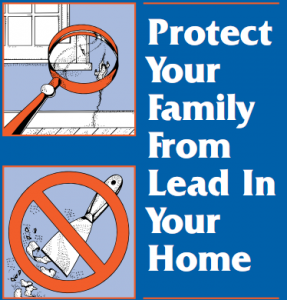Posted by Teresa on August 31, 2011 under Landlord Tips | 

Now that the kids are starting to return to school, landlords can turn their attention to fall maintenance duties at their rental properties. Now is a good time to schedule routine maintenance and inspections at all your rental units, and see what you’ll need to do over the next few months to prepare for winter.
8 Landlord Tips for Fall:
- Don’t wait until the first cold snap to discover the heat isn’t going to work. Turn on the furnace at your rental properties, and make sure it runs. Give new tenants a lesson on how it works, and what signs for problems to be on the look out for.
- While you’re at it, change the furnace filters. You could even leave several behind and ask tenants to change them on the first of the month (after they pay the rent, of course). If your tenants don’t remember to change them, you’ll have a handy stack to do it yourself next time you stop by.
- Change the batteries in smoke and CO2 detectors. Remind tenants not to remove the batteries—ever—even if the detector is beeping.
- Locate all water shut-off valves. Prevent water emergencies by showing tenants where the water main, water heater, and any other valves are located. Then instruct tenants on how to turn them off in case of emergency.
- Speaking of water heaters, drain a few gallons from the tank through the drain valve to remove sediment that can interfere with performance.
- Remove any outside garden hoses and cover outside faucets. Install inexpensive insulators to prevent freezing pipes—and expensive repairs.
- Check handrails on stairs and railings on decks. Before things start to get slippery, be sure they are in good shape, or repair them if they are not. Making sure all are secure can prevent serious injuries to tenants and visitors.
- Finally, look around while you’re in each unit, to gauge how tenants are treating the property. If you see signs of damage, point out that nipping it in the bud can help them keep more of their security deposit when moving day comes.
Posted by Teresa on August 18, 2011 under Landlord and Tenant FAQs | 
 Q: Can a landlord prevent a tenant from breaking a lease with 60 days’ notice, due to trauma from a violent crime that occurred in the rental unit?
Q: Can a landlord prevent a tenant from breaking a lease with 60 days’ notice, due to trauma from a violent crime that occurred in the rental unit?
A: In some cases, and in some jurisdictions, the law would allow a lease to be broken without penalty. Usually, a tenant who signs a one-year lease cannot terminate it mid-term, even with a 60-day notice. In general, a landlord is not liable for unforeseen criminal acts of a third party against his or her tenants. If the tenant had reported issues regarding safety, such as inoperable door or window locks, or insufficient lighting, the tenant may have recourse, as the landlord could be considered in breach of the lease for failing to protect the tenants.
In a case like this, landlords could find themselves between a rock and a hard place, wanting to avoid any admission of liability by allowing a tenant out of a lease, while understanding why they would want to move.
Q: If I see that a tenant is demonstrating some hoarding tendencies, should I intervene?
A: Landlords have the right to expect a tenant will keep the rental property in good, clean and safe condition. Hoarding can be a safety hazard, particularly if flammable materials are kept in large quantities or emergency crews would have a difficult time navigating through the unit. Tenants who keep debris, garbage, empty boxes and cans, and stacks of newspapers in a rental unit are endangering themselves and other tenants.
Don’t ignore this situation. Keep the lines of communication open and respectfully and gently talk to the tenant about the situation. You may need to try contacting a family member (perhaps from the emergency contact listed on the lease application).
Q: My tenant damaged a wall and hardwood floor by carelessly leaving a window open during a rainstorm. I took the repair money out of their security deposit, and they replenished it. Now I want to terminate the lease to prevent this from happening again. Do I have that right?
A: Carelessness is not gross negligence. If the tenant is on a month-to-month lease, then you may terminate with notice, with no reason given. But if it’s a longer lease, this situation probably will not qualify as an allowable reason.
Legal disclaimer:
The contents of this article are intended for general information purposes only, and should not be relied upon as a substitute for obtaining legal advice applicable to your situation.
Posted by Teresa on August 17, 2011 under Housing Trends, Rental Market | 
 Real estate investors have long been active in college towns for a number of reasons. Rentals are often short-term and dealing with younger students as tenants can be problematic, but when mom and dad co-sign the lease, they tend to pay the rent on time every month.
Real estate investors have long been active in college towns for a number of reasons. Rentals are often short-term and dealing with younger students as tenants can be problematic, but when mom and dad co-sign the lease, they tend to pay the rent on time every month.
College enrollments are up, and on-campus housing is in short supply. Demand for rentals is high and vacancies low, so rents are generally healthy. All told, college students who need a place to live can be excellent prospective tenants—and rental property in a college town can be a great opportunity, if the terms and price are right for you.
Move.com recently published a list of the best university cities for real estate investment. Here’s how their ratings shook out:
| City |
Median List Price |
Average Rent, 2BR |
Average Rent, 3+BR |
| Boston |
$335,000 |
$3,122 |
$3,913 |
| Nashville |
$189,000 |
$949 |
$1,020 |
| Chicago |
$199,900 |
$1,780 |
$2,074 |
| Washington DC |
$375,000 |
$3,086 |
$3,214 |
| Houston |
$174,900 |
$1,218 |
$1,478 |
| South Bend, IN |
$112,900 |
$790 |
$880 |
| Atlanta |
$159,600 |
$1,236 |
$1,485 |
| Baltimore |
$242,700 |
$1,443 |
$1,663 |
| St. Louis, MO |
$163,945 |
$1,016 |
$1,283 |
| Syracuse, NY |
$154,900 |
$838 |
$970 |
- Boston has over 50 colleges and list prices have dropped nearly 3% since last June. Rents are on the rise.
- Nashville’s average rents are higher than the average mortgage of $770.
- Chicago’s median list price is down over 16% since last June.
- Washington DC’s average mortgage for a median-priced home is around $1,530.
- Houston has low-priced inventory and some top-ranked colleges. Average mortgage is about $710.
- South Bend is home to Notre Dame and the average mortgage payment is around $990.
- Atlanta’s median list price is down 13.68% from last June, and lower than the national median.
- Baltimore is home to Johns Hopkins University, with median prices down 7.72% since last year.
- St. Louis, MO ‘s median list price is also lower than the national average, and mortgage payments average around $670.
- Syracuse is home to Syracuse University, as well as several other colleges. Median prices are down and the average mortgage payment is around $630.
College towns have a ready-made pool of renters, and generally, the rent money is not a problem. Manage the property correctly, and you could have a successful investment for years to come.
Posted by Teresa on August 12, 2011 under Landlord Paperwork and Forms | 
 If you’re a landlord who owns older rentals, you may be at risk for liability if you don’t properly disclose the possibility of lead-based paint. Lead-based paint was commonly used prior to 1978, when it was banned. If it cracks, peels or is scraped or sanded, it can still pose a health hazard, particularly to children who ingest paint chips or breathe the dust. Lead paint still exists in many older homes.
If you’re a landlord who owns older rentals, you may be at risk for liability if you don’t properly disclose the possibility of lead-based paint. Lead-based paint was commonly used prior to 1978, when it was banned. If it cracks, peels or is scraped or sanded, it can still pose a health hazard, particularly to children who ingest paint chips or breathe the dust. Lead paint still exists in many older homes.
The Residential Lead-Based paint Hazard Reduction Act, commonly known as Title X, was enacted in 1992. The Environmental Protection Agency regulates the act for all rental properties built before 1978.
Under Title X, landlords must disclose any known lead-based paint or hazards on the property to tenants before signing or renewing a lease or rental agreement. The tenants and landlord must sign an EPA-approved form to prove the landlord disclosed information about any known lead on the premises. The landlord must also provide tenants a brochure, “Protecting Your Family From Lead in Your Home,” supplied by the EPA or the state. The brochure is available online or you can request printed brochures from the National Lead Information Clearinghouse at 800-424-5323.
Property owners are not required to test for lead or remove it. And, certain properties are exempt from the lead disclosure requirement:
- Lofts, efficiencies and studio apartments
- Short-term vacation rentals of 200 days or less
- Single rooms rented in a residence
- A building certified as lead-free by an accredited lead inspector
- Housing designed for person with disabilities, unless children live there
- Retirement communities, unless children are expected to live there
- Housing built after January 1, 1978
Lead-based paint should not be removed unless proper precautions are taken. Even low levels in the bloodstream pose serious health risks to everyone, but especially children and pregnant women. Landlords should read the EPA brochure to become familiar with the dangers and regulations surrounding lead-based paint.
Posted by Teresa on August 10, 2011 under Landlord Tips | 
 When you become a landlord, it’s not easy to figure out the best way to approach every problem. You’re bound to make mistakes (otherwise known as “learning opportunities”). Following these 8 tried-and-true tips from other successful rental property owners can make it easier for you to avoid making common errors.
When you become a landlord, it’s not easy to figure out the best way to approach every problem. You’re bound to make mistakes (otherwise known as “learning opportunities”). Following these 8 tried-and-true tips from other successful rental property owners can make it easier for you to avoid making common errors.
- Remember you’re in the people business. Providing good service to your tenants is part of your job. If you’re shy, or don’t deal well with a wide variety of personalities, you may not find success as a landlord.
- One way to provide good service is to respect your tenants’ privacy. Always provide notice before you enter their units. The minimum is at least 24 hours; more may be required by your local or state laws.
- Don’t ever allow a tenant to move in until the rental agreement is signed and the first month’s rent and security deposit are paid.
- Don’t allow a tenant to move in until a background check, credit check and reference checks are completed.
- Keep up with maintenance and repairs, or they can get out of hand—and even become a hazard. If not repaired promptly, a loose board on a stairwell can lead to injury or even a tragic situation.
- When tenant disputes come up—as they invariable will—try to resolve them through good communication first. If an agreement cannot be reached, you might try mediation. Mediators are neutral third parties who make sure both sides’ issues are heard, and assist you in reaching an agreement both sides can live with.
- It’s important to put your tenants’ health and welfare first. Disclose hazards, such as lead paint, according to the law. Take care of water leaks, which can lead to mold. Address any insect or rodent problems immediately. And always make sure that door and window locks are easy to operate, fire escapes are accessible and smoke and CO2 detectors are in place and operating.
- Keep good records. Every piece of correspondence with a tenant is valuable. You never know when you’ll need proof of a payment, a notice or a conversation.
Posted by Teresa on August 5, 2011 under Lease and Rental Agreements | 
 When a tenant moves out, but leaves personal property behind, what is the best way for a landlord to handle it? As with most tenant issues, the best way to take care of a problem is to prevent it in the first place. And barring that, it’s best to have it covered in your lease so there are no questions about how to proceed, and the tenant has already agreed to the process.
When a tenant moves out, but leaves personal property behind, what is the best way for a landlord to handle it? As with most tenant issues, the best way to take care of a problem is to prevent it in the first place. And barring that, it’s best to have it covered in your lease so there are no questions about how to proceed, and the tenant has already agreed to the process.
Tenants often leave furniture, clothes, books or appliances behind when they move. Some no longer want the items, and figure the landlord will just clean up after them. Others want the landlord to store their property until they are able to retrieve it. Either way, it can be troublesome for the landlord.
When a Tenant Abandons Property
First, check your local laws on abandoned property. You may be obligated to hold a previous tenant’s property for a period of time, which could be five days or 30 days, before you may dispose of it. Some jurisdictions require landlords to send notices via registered mail as well. Failing to follow your local laws could land you in legal trouble, so if you’re in doubt, obtain legal counsel.
Preventing the Left-Behind Property
The best scenario is when landlord and tenant do a walk-through of the rental property on move-out day. A move-out inspection is conducted and the tenant initials each item, recognizing any damage or possible deductions from the security deposit. However, that’s not always possible. If you or your property manager are not present when the tenant leaves (and many do so under the cover of darkness—especially if they’re leaving behind a mess), you could be in for a big surprise when you come to inspect the property.
Every rental agreement should contain a clause that clearly addresses how the property owner will handle any property left behind after the lease is up. Abandoned property should be defined, and the time between the end of the lease and the disposal of the property clearly stated. Remember, you’re not running a storage facility, and you could be entitled to rent for each day a tenant’s personal belongings are in your rental property.
You could simply state that all property left behind after termination of the lease will be considered abandoned and will be disposed of, according to statute. Of course you should consult a landlord/tenant attorney for exact language and guidance.






